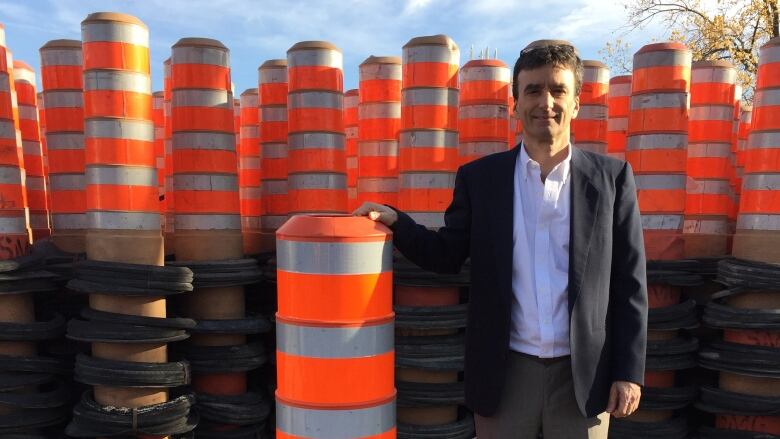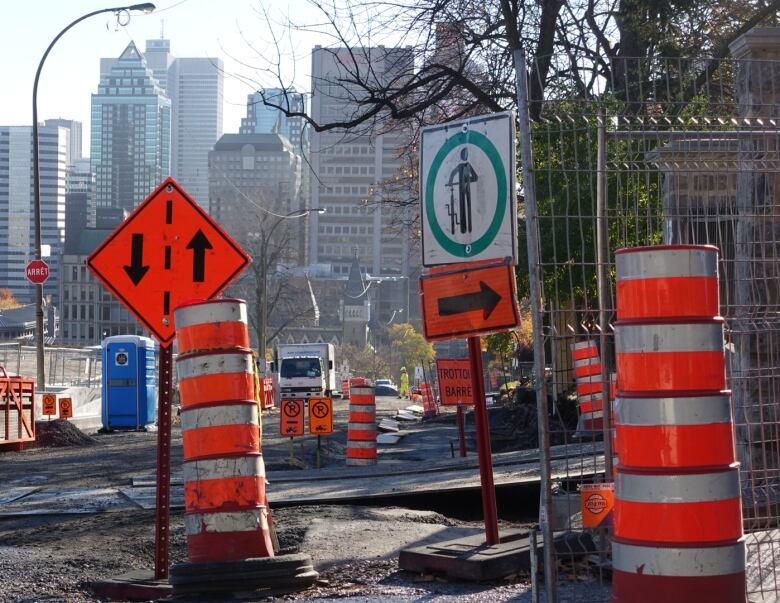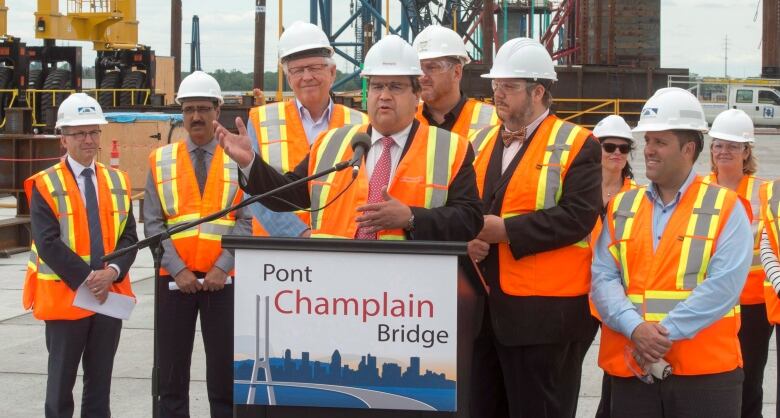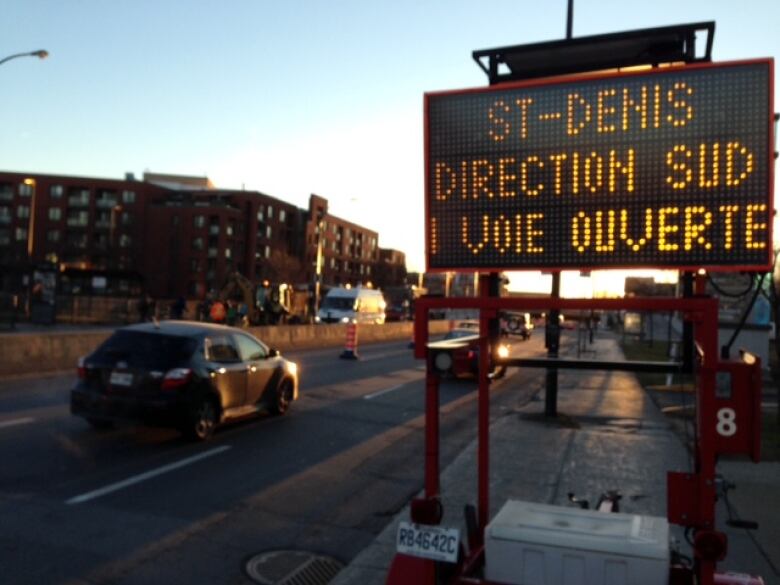For Montrealer, making a living from orange cones is bittersweet
'When I drive, I get mad as everybody else and then I think that's what's giving me my job'

For Christian Fay, navigating the endless parade of orange cones and detour signs on Montreal roads brings up conflicting feelings.
"When I drive, I get mad as everybody else and then I think that's what's giving me my job," he told CBC Montreal's Homerun.
Fay is vice-president of SMG Signalisation, which makesconstruction site signage.
In other words, he'sone of the fewMontrealerswho has a reason to smile when he gets stuck in traffic.
When a construction company is doing roadwork, Fay's company is one of the many that are then subcontracted to manage all the signage.
"That means taking care of safety safety for the workers, safety for the drivers but also managing traffic so people can go around the construction site," he said.

Signalisation SMG has about 10,000 orange cones, which have been used everywhere from the TurcotInterchange to the ChamplainBridge sites.
But the ubiquitousness of construction signage and cones yields little sympathy from Montrealers.
"I could tell you horrible stories of drivers throwing dirty diapers at signage workers," Fay said. "But the cones are not the problem. The problem lies with the construction site."
The only downside to our #Montreal weekend was the 24 hour festival of the orange cones #construction pic.twitter.com/MOkoqkwhZo
—@danaLandersonAnd there certainly hasn't been a shortage ofconstruction sites. Fay said he expects to see a 20to 25 per centincrease in profitsthis year.
"Business has been good and it's probably going to get better in the next few years," he said.
That's because Montreal Mayor Denis Coderre recently announced a major 10-year plan to bring the city's infrastructure up to standard.
- Get ready, Montreal: Major construction plans, roadwork unveiled for next 10 years
- More detours ahead: Montreal outlines $6B plan to fix roads, revamp infrastructure
Fay and others surely won't be out of work as construction ramps up in 2017 with676 kilometres of infrastructure to repair each year at annual cost of $702 million.
Though Fay has no question that companies like hiswill be able to manage the increased workload, he has many questions as to how the city will coordinate it all.
"Right now, I think they're working at full capacityso are they going to hire people? Are they going to improve the training of the people who are involved in supervising or organizing construction sites?"he said."Are they going to give those mandates to engineering firms? I meanwe don't know."
"But they will have to find a solution or they won'tbe able to deliver what they've promised."

Construction chaos
Fay said the city manages construction better than it used to, but it still has a ways to go.
For starters, the city needs to a better job of coordinating adjacent construction sites, he said.
"Sometimes you get two or three or four construction sites in the same area so you're sending people from one construction site to a detour onto the next construction site. That's a major problem."

He said municipalities alsoneed to familiarize themselves with the signage standards set by the Ministry of Transport.
"The distance between cones is very precise. The type of reflective sheeting you have on signs is very precise," he said, but a lack of informed supervisors, if there are any at all,"means that some companies get away with not respecting the rules."
The price of not improving on coordination and supervision is "going to mean hell for drivers," he warned.
Though one would think that a drastic increase in roadwork would make a someone likeFay happy, he says his business isn't necessarily looking to grow.
"We're happy with the volume we have now,"he said. "Ifthe mayor hadn't announced an increase in the number of construction sites next year, we'd be fine, we'd still be making a living."
Though construction is good businessfor Fay, he'll have to avoid rush hour and take public transit like everyone else to deal with it.
With files from CBC Homerun












_(720p).jpg)


 OFFICIAL HD MUSIC VIDEO.jpg)
.jpg)



























































































